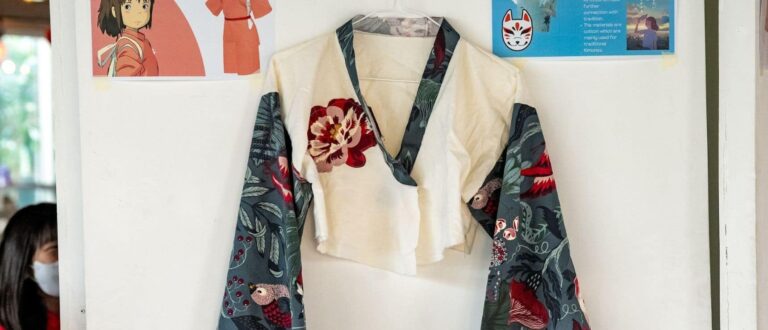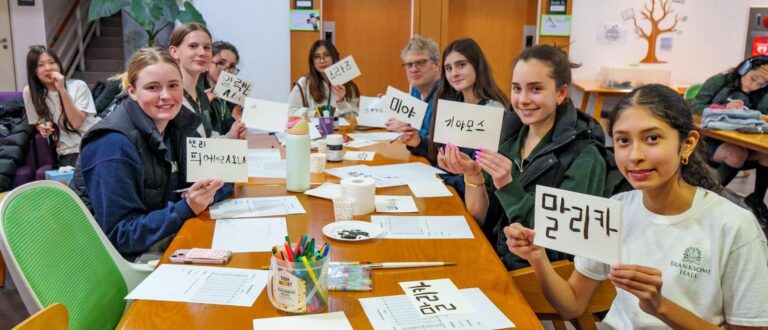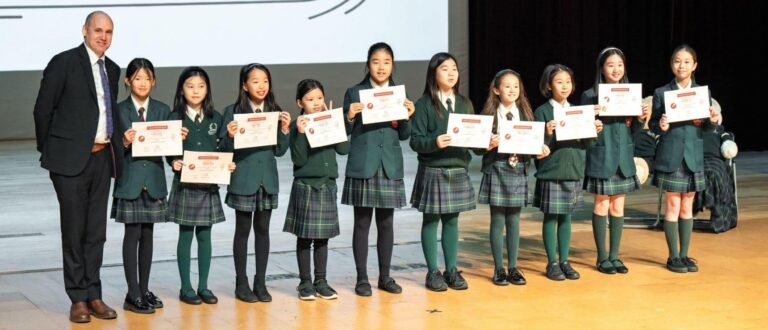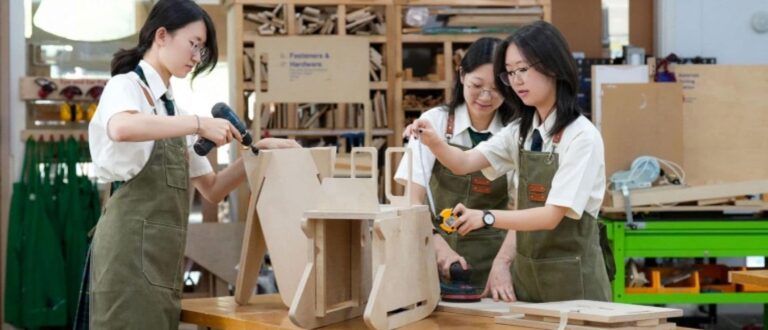Theater students in Helen Thompson’s introductory class began the year with a timely prompt: write a story about these strange times.
The small class divided into two groups and began drafting ideas for a screenplay. “During a brainstorm, you get to throw a lot of ideas out,” Claire, grade eleven, says, “Then you find something interesting when you combine ideas.” Claire’s group settled on creating three scenes to illustrate changes to one family’s daily life as the pandemic took hold. The other group produced a script following separate individuals as they navigate their new world.
Extra challenge: each screenplay was produced via Zoom. One group elected a grid view with family characters addressing each other. The other group chose a speaker view, cycling between individual characters. Both approaches required planning, coordination, several takes, and editing. Along the way, students learned how to communicate clearly with each other. “There was the challenge of communicating the flaws of an idea,” Hyunjae, grade eleven, says. But the conversation took a collaborative shift as students got comfortable introducing new ideas and compromising as a group.
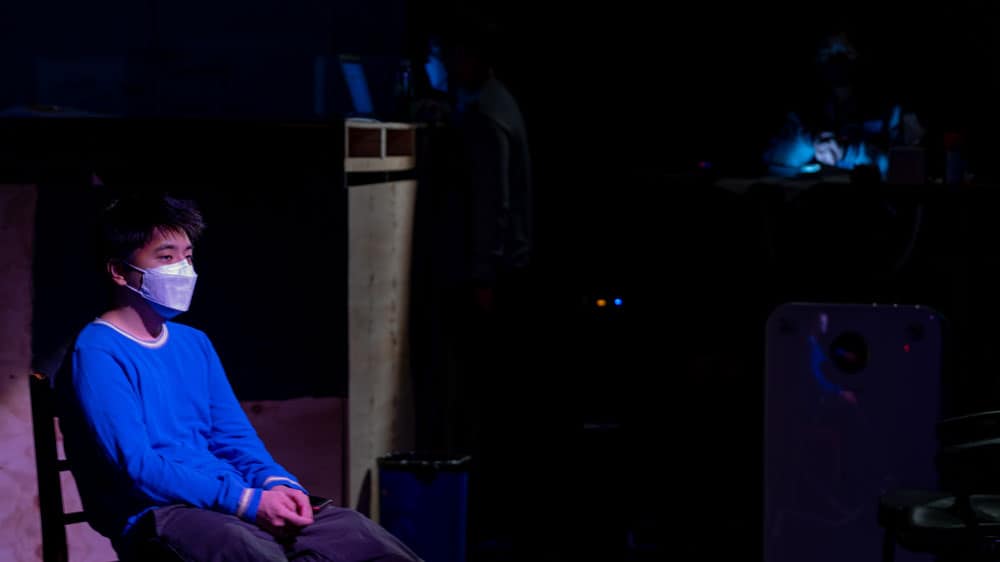
Now the class continues to work with their scripts, adapting for a stage play. To produce a black box play, both groups must learn sound and light design and blocking, along with other backstage elements of a play. Each group completes multiple run-throughs to find the best lighting and placement for the scene. Eliza, grade nine, loves experimenting with what the audience will see. Christie, grade ten, is a writer who enjoys this latest challenge, modifying the script for the stage. Ernie, grade ten, has fun acting. Even acting silly.
Play is an important part of producing a play! Theater classes give students a chance to empathize as they engage with different characters. Costumes are an important part of a play too. Since each student plays multiple roles, costumes help distinguish characters onstage. “It’s easier to get into a character when you’re in costume. You feel like that person,” Hyunjae says, and others agree that a good costume helps you imagine how a character feels. Students create costumes from the KIS closet or bring pieces from home.
And theater productions generate bonds between students too. After years of participating in afterschool productions, Claire joined this theater class because she missed the energy and fun of working on a show. Minyoung, grade twelve, whose previous acting experience was with after school academies, enjoys working with peers from different grades. “Different perspectives add to what we can do,” he says. This year students in Ms. Thompson’s theater class perform first for each other. Perhaps their appreciation is even greater, knowing the work and fun behind each scene.


